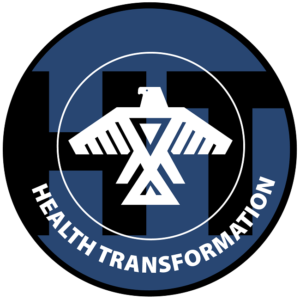Strategic planning underway for Anishinabek Nation Health Transformation
NIPISSING FIRST NATION— The Anishinabek Nation’s Health Transformation team is connecting with member First Nations to conduct engagement sessions in order to discuss a comprehensive system change.
Health System Transformation is about Anishinabek Nation First Nations being free to exercise control over the design and delivery of their own health and wellness. This will result in healthier and happier First Nations and citizens. All Anishinabek Nation citizens deserve to live a healthy lifestyle and many First Nations have been advocating for greater control of their health and wellness that are also consistent with their inherent right to self-determination.
The Health Transformation team will work with each community by involving members in various activities that will be engaging and informative. The team will gather community-level feedback on the draft plans and recommendations that will capture concerns and aspirations; involve all citizens in the planning and designing of a holistic health system that will ensure ideas and concerns are reflected; and, include direction from leadership, management, frontline workers, and all citizens living on and off-reserve.
The Health Transformation project is a large undertaking that involves many steps to incorporate as we formulate a process in moving forward.
“We’re trying to approach this work more strategically and from a higher level. There’s an appetite now with our federal partners for health transformation,” says Anishinabek Nation Lake Huron Regional Deputy Grand Council Chief Travis Boissoneau. “We have to remain mindful of evolution; we can’t take on this responsibility with the same policies, the same legislation and funding levels that currently exist. The work that we want to do requires a lot of research. There are a lot of conversations we have to have with our communities and with the leadership to make sure that we can define health transformation. We have a lot of work to do, we look for the support from our communities to guide us in this work.”
A strategic planning session took place on Oct. 21 and 22. In attendance were the Health Transformation team, Anishinabek Nation leadership, and Nation Council members. Together, they listed over 40 priorities and narrowed it down to 24 themes in total.
“We want to engage with health officials and staff in our communities, as well as the youth, in order to get an overall picture as we move towards our strategic plan. We know it’s not complete. As we look to get this project off the ground, we have defined some of our priorities,” says Loretta Nootchtai, Health Transformation Project Manager.
The 24 themes were organized into a three-tiered priorities cluster. The first cluster of priorities included governance, community engagement, health model development, working groups and committees, etc. The second cluster prioritized data collection, rights-based approach, communications strategy, etc. The third cluster of priorities focused on human resources, technology, facility infrastructure, traditional medicines, etc.
“We plan to have more strategic planning sessions in the future. We had 24 themes come from this planning session, but there could be more to come. We will be gathering more input from our health experts, Knowledge Keeps, leaders, cultural coordinators, Elders, and youth. We will be presenting to First Nations and setting up working groups from each community,” adds Nootchtai.
The Health Transformation team sent out a notice seeking working group members from each First Nation. So far, there has been some interest. More citizens are encouraged to participate. The team has been reaching out to First Nation leaders and health managers to schedule meetings regarding Health Transformation.
“We’re going to keep building. This project is moving forward every day. We’re pushing the agenda on mental health and addictions for our citizens,” says Jamie Restoule, Anishinabek Nation Health Director.
For more information, to book a community engagement session, or to inquire on how to become a working group member, please contact your First Nation’s Chief and Council or Health Director. To learn more about the Anishinabek Nation Health Transformation, please visit health-transformation.ca.



